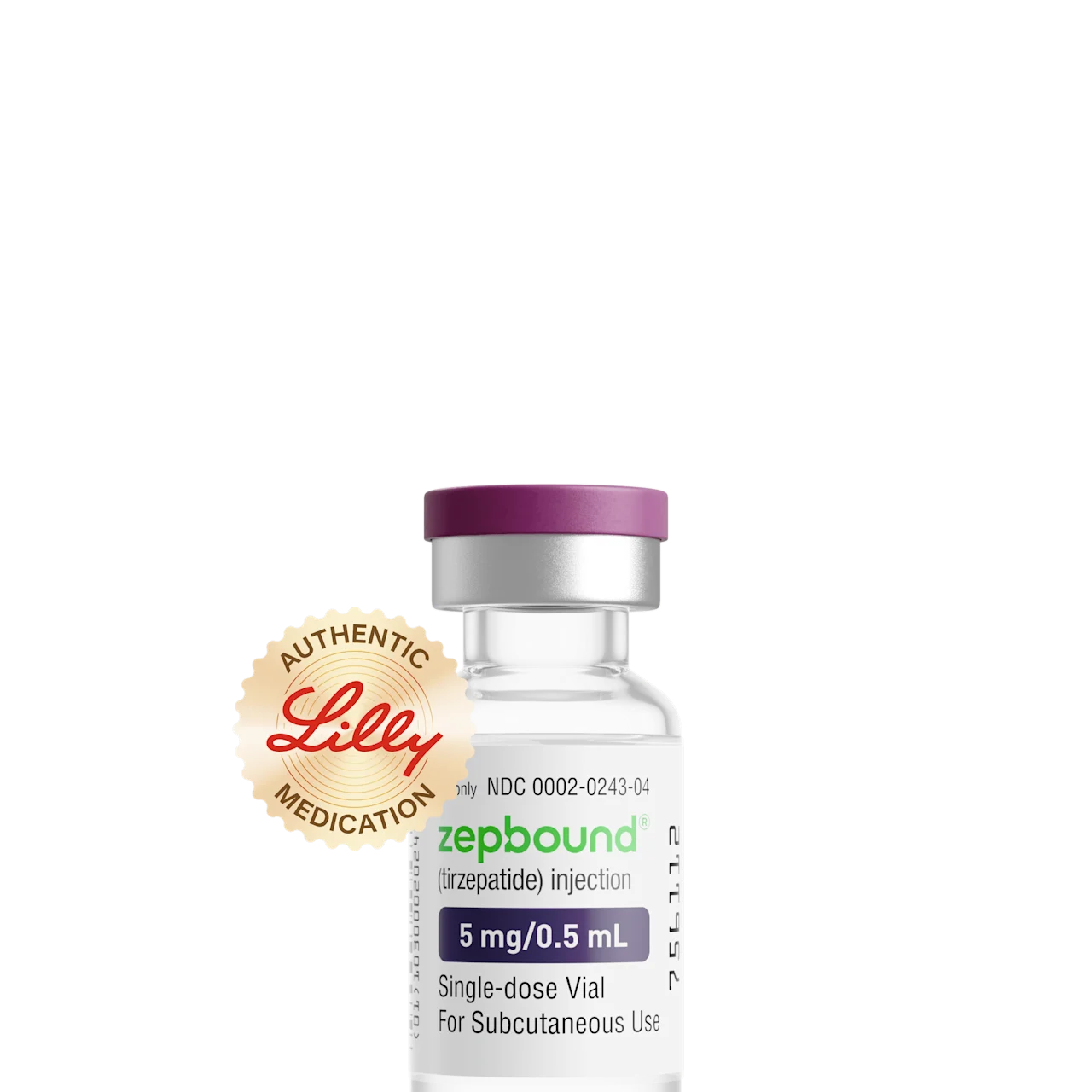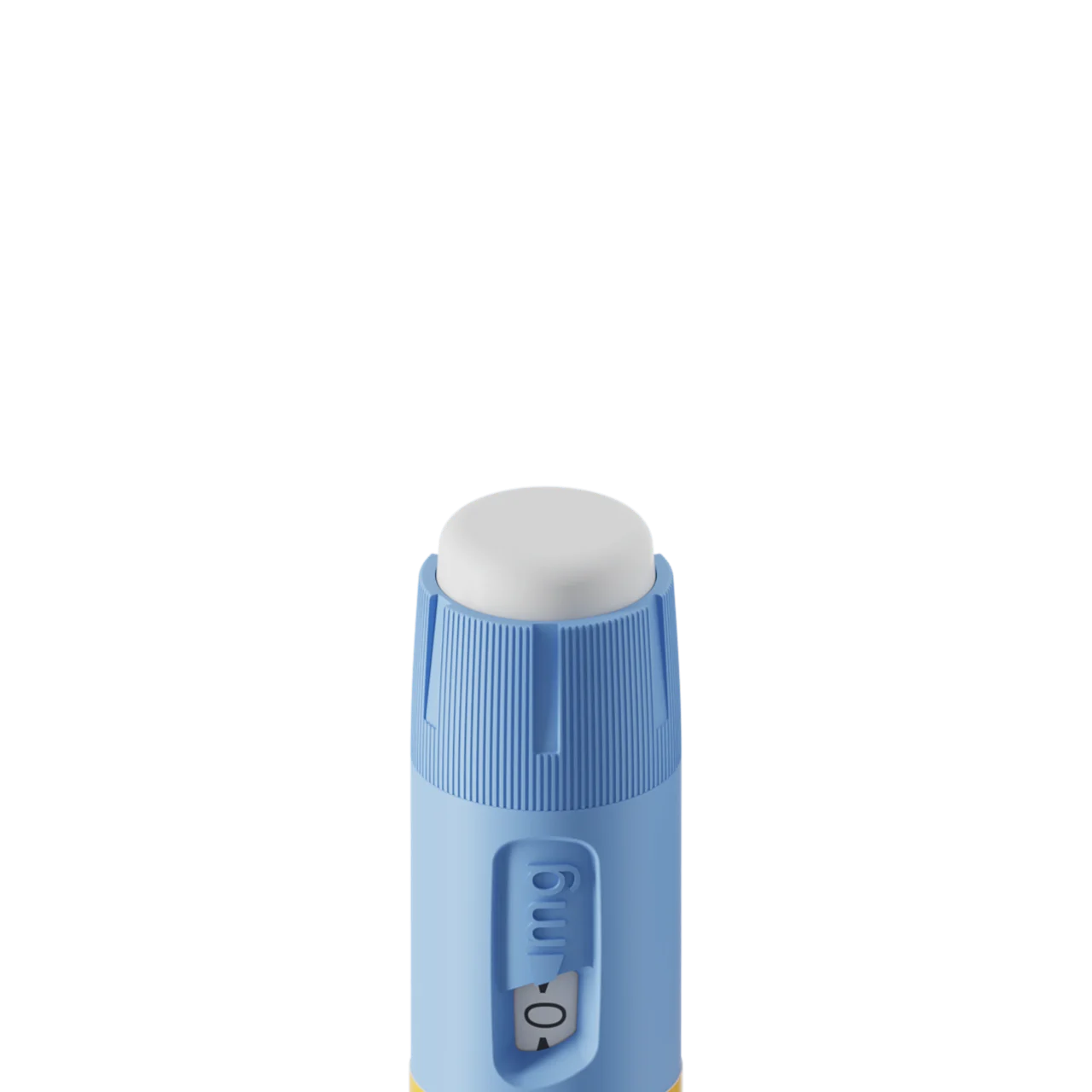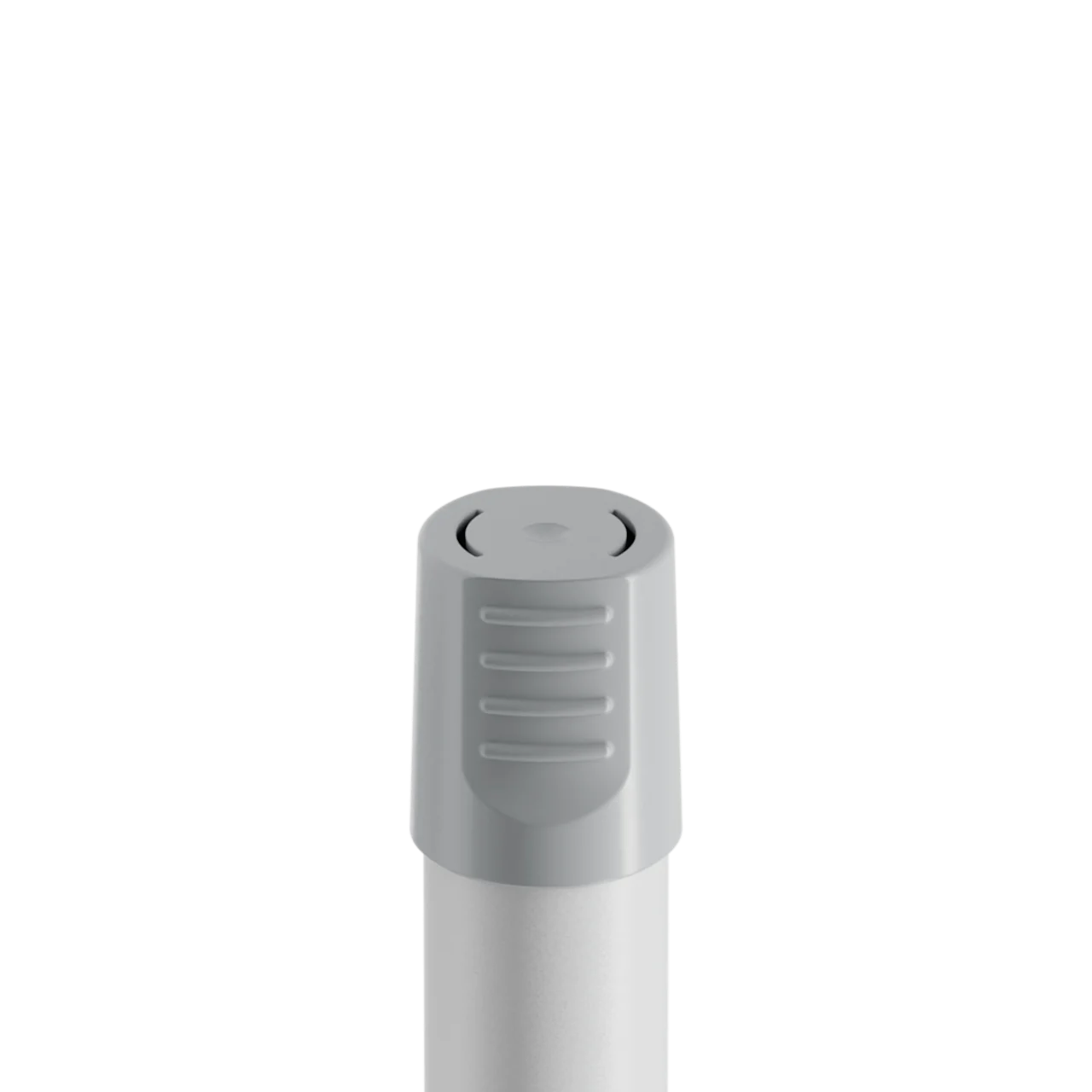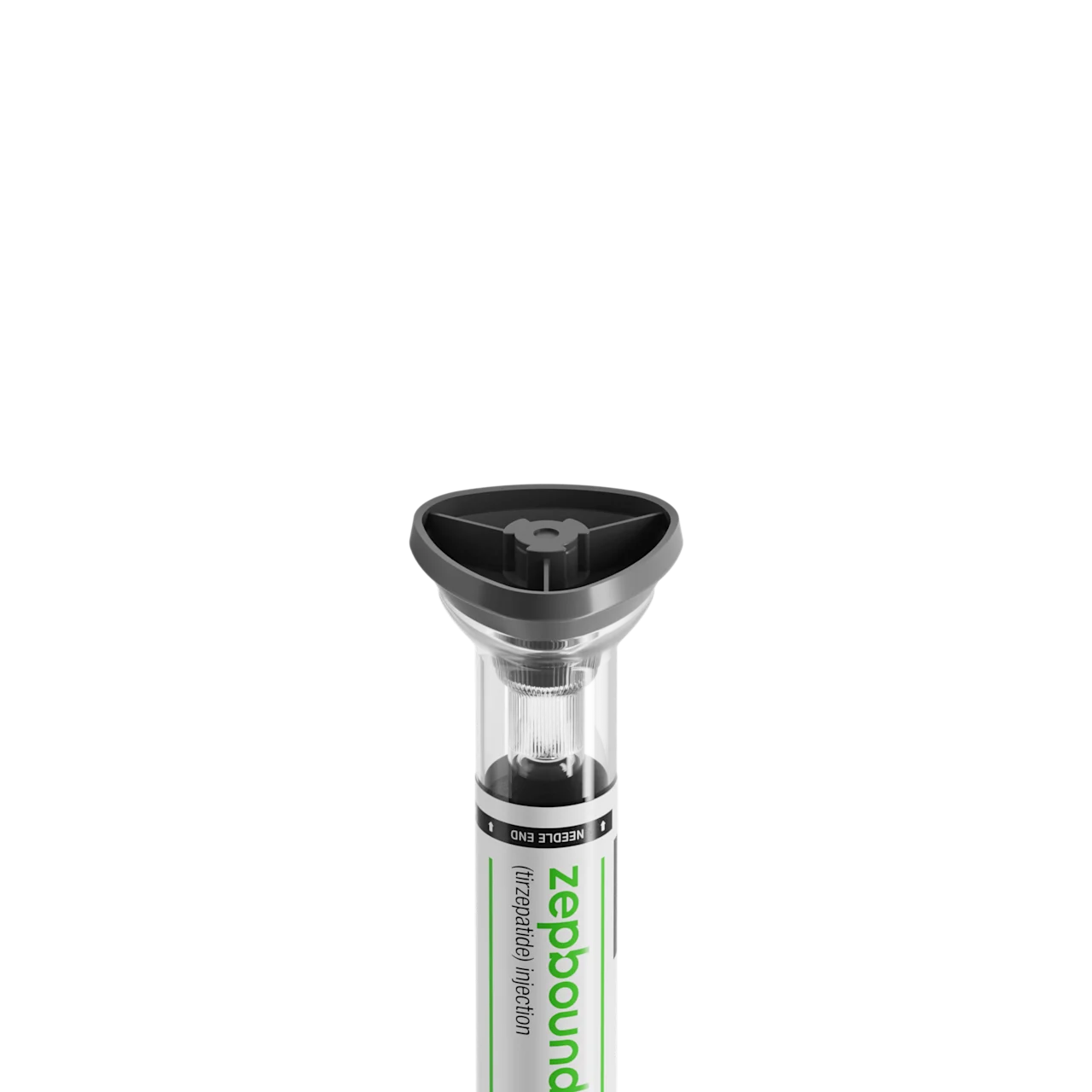Key takeaways
Several natural alternatives to Ozempic — including a high-fiber diet, increased protein, regular exercise, and berberine — have at least some evidence in support of weight loss.
Many of these strategies work by mimicking effects similar to those of Ozempic, such as slowing digestion, curbing appetite, and improving insulin sensitivity.
While natural alternatives can be effective, they typically work more gradually than Ozempic, and results vary from person to person. Furthermore, supplements are not FDA-regulated and may not be safe for everyone to take.
Here's what we'll cover
Key takeaways
Several natural alternatives to Ozempic — including a high-fiber diet, increased protein, regular exercise, and berberine — have at least some evidence in support of weight loss.
Many of these strategies work by mimicking effects similar to those of Ozempic, such as slowing digestion, curbing appetite, and improving insulin sensitivity.
While natural alternatives can be effective, they typically work more gradually than Ozempic, and results vary from person to person. Furthermore, supplements are not FDA-regulated and may not be safe for everyone to take.
Ozempic (semaglutide) is an injectable medication that can be prescribed off-label for weight loss. When used off-label, however, your insurance likely won’t cover it. If that’s a dealbreaker for you, or if you’re looking for a natural way to lose weight that doesn’t involve weekly injections, fret not — there are many natural alternatives to Ozempic for weight loss. Read on to learn more about 10 potential options, how they work, and how you can reap their rewards.
10 natural alternatives to Ozempic
Even though Ozempic is not approved by the US Food and Drug Administration (FDA) specifically for weight loss, the medication can produce impressive slim-down results. In a clinical trial of people with type 2 diabetes, Ozempic caused an average weight loss of 13–15 pounds in 10 months.
But Ozempic is by no means the only tool for weight loss. And insurance coverage for Ozempic can be hard to come by, especially if you’re taking it off-label. Throw in the drug’s high out-of-pocket cost, and you might be looking for more affordable, natural alternatives to Ozempic for weight loss, such as:
Fiber
Protein
Plant-based food
Mindful, slow eating
Water
Exercise
Overall movement
Stress reduction
Sleep
Berberine
While these may not work as quickly or as effectively as prescription medication, they can still help you lose some weight — and enjoy a healthier lifestyle that helps support weight maintenance moving forward.
1. Fiber
One of the ways GLP-1s like Ozempic work is by slowing down the digestive process. Since it takes longer for food to digest, you feel full longer and may eat less as a result.
“Including fiber-rich foods with all of your meals is a way to achieve this effect naturally, [although the effects of GLP-1s will be stronger,” says Lauren Benser, MS, RD, LD, registered dietitian and owner of Lauren Benser Nutrition.
Because fiber slows down digestion, you feel full longer from a meal with fiber compared to one without the nutrient, even if the calorie count is the same, Benser says. And fiber tempers the blood sugar rise that happens after a meal, so you’re less likely to experience cravings, she adds.
Fiber also supports a healthier microbiome, which can have a positive impact on your overall metabolism.
Here are some fiber-rich foods that Benser recommends:
Fruits (e.g. berries, pears, apples)
Vegetables (e.g. sweet potatoes, kale, Brussels sprouts)
Legumes (e.g. beans, chickpeas, lentils)
Whole grains (e.g. quinoa, oats)
“All of these are relatively low in calories compared to the volume of food, meaning you’re able to fill up on plenty of food and feel full, while still staying in a calorie deficit,” Benser explains. As for serving, she recommends including at least 1 cup of fruit, veggies, beans, or whole grains with each of your meals.
2. Protein
Protein is another fan-favorite macronutrient when it comes to weight loss. In fact, it’s often considered an integral component of any Ozempic diet plan. So, it makes sense that it’s high on this list of natural Ozempic alternatives.
“Protein triggers your own satiety hormones (like GLP-1) and, most crucially, [helps] maintain precious muscle mass that keeps your metabolism from crashing,” says John La Puma, MD, FACP, a board-certified internist and author of ChefMD's Big Book of Culinary Medicine.
Dr. La Puma recommends aiming for 1.2-1.6 grams of protein per kg of your ideal body weight daily or about 25–30 grams per meal, and to “go after the lean sources.”
Examples of high-protein foods include:
Poultry (e.g. chicken breast)
Shellfish
Canned fish (e.g. sardines, tuna)
Tofu
Low-fat dairy (e.g. Greek yogurt)
Desiree Kretchmar, RD, LDN, CPT, registered dietitian and virtual nutrition consultant, also recommends “protein-first eating” to her clients. “Protein slows gastric emptying — just like Ozempic does — but without the side effects. I recommend clients front-load their day with a protein-rich breakfast to curb late-day cravings.”
Breakfast-friendly protein options may include eggs and Greek yogurt, says Mina Mogahdam, CNC, a certified nutrition counselor at Evolve Wellness Group who specializes in disordered eating. Check to make sure the Greek yogurt you select doesn’t have a lot of added sugar. Other good sources of lean proteins include turkey, fish, nuts, and legumes.
3. Plant-based diet
Increasingly, research shows that plant-based diets — including vegetarian, vegan, and whole-foods plant-based diets — can be effective at supporting long-term weight loss, especially in people with obesity and overweight.
Since plants tend to be low in calories and fat but high in fiber, eating more of them can help you feel full longer, Kretchmar says.
“Non-starchy vegetables (leafy greens, broccoli, zucchini, etc.) are not just filler — they stretch the stomach and trigger satiety signals,” she explains. “Soluble fiber also blunts post-meal glucose spikes, reducing hunger swings.”
Boosting your plant intake can start with something as simple as filling half your plate with vegetables. Just make sure you discuss any major dietary changes with your healthcare provider to avoid becoming deficient in key vitamins and nutrients like iron and B12.
4. Mindful, slow eating
GLP-1 medications like Ozempic act on regions of the brain that regulate appetite, so people taking them become more aware of when they feel full. “If you are looking to increase this awareness naturally, slow down the pace at which you eat and try not to eat when distracted,” Benser says.
While more research is needed, some studies have found that practicing mindful eating can lead to weight loss. Such a technique involves focusing on eating without distractions and really savoring each bite as you eat it, noticing how it tastes and feels in your mouth.
“It takes time for our brain to recognize fullness, and by slowing down the pace at which we eat, we are better able to recognize fullness,” Benser explains. “When we eat in a calm and undistracted state, we feel more satisfied with our food, our gut is relaxed, we digest better, and are better able to recognize fullness.”
5. Water
It sounds deceptively simple, but regularly sipping more water can help you lose weight. Studies show that drinking more water — both overall and specifically before a meal — can lead to an average weight loss of about 5% in some cases. If you currently drink a lot of caloric beverages, such as alcohol and sugary sodas, replacing them with H2O can make a big difference in your weight loss journey, according to research.
Use these tips to take advantage of this natural alternative to Ozempic:
Bring a water bottle with you to work, school, and errands
Flavor your water with fruit or herbal infusions
Set up a recurring reminder on your phone to remind you to drink water during the day
Pair drinking water with other activities you reliably do throughout the day, such as waking up or driving to or from work
6. Exercise
Exercise generally helps with weight loss, but the best formula seems to be a combination of aerobic and resistance (e.g. strength training) exercises. Regularly engaging in a mix of aerobic and resistance-based workouts can lead to more weight loss, more fat loss, and a greater reduction in cardiovascular risk, according to research.
“Even short, consistent sessions (like 30 minutes of walking or bodyweight exercises) can make a significant difference,” Mogahdam says.
While exercising is key to weight loss, “maintaining high levels of activity, especially strength training, is essential for long-term weight control,” Dr. La Puma says.
For his patients, Dr. LaPuma recommends an exercise routine that includes resistance training two to three times a week plus 200–300 minutes of moderate aerobic activity, such as brisk walking. During your resistance workouts, he recommends engaging all your major muscle groups and performing two to four sets of 8–12 repetitions each, gradually increasing the difficulty level over time.
7. Overall movement
Even beyond exercise, simply moving more in general can lead to more calories burned and weight lost. That’s why Benser recommends increasing your NEAT, or non-exercise activity thermogenesis, as a natural alternative to Ozempic.
In essence, NEAT describes any movement you do throughout the day that is outside of intentional exercise. “[It’s] often a significant number of hours in a day, and if we are intentionally active during this time, it adds up to a significant amount of energy or calories burned,” Benser explains.
Increasing your NEAT — i.e. daily movement — can take a number of forms, including:
Taking several short walks throughout the day
Standing more often
Parking further away to increase your steps
Taking the stairs
Gardening
Walking on calls or between meetings
“Walking after meals (especially dinner) can improve insulin sensitivity, regulate blood sugar, and aid digestion,” Kretchmar adds. “It’s underrated and massively effective, especially in perimenopausal women whose glucose regulation may be shifting.”
Your NEAT is part of your total daily energy expenditure, or TDEE, which measures how many calories your body burns during a 24-hour period. Increasing your NEAT can increase your TDEE and aid in weight loss — but first, you need to find out your TDEE:
Find out your daily calorie needs
Quickly calculate your total daily energy expenditure to optimize your diet, fitness, and weight goals.
Maintain your current weight
----
CAL DAILY
Lose one pound per week
----
CAL DAILY
This TDEE calculator is for informational purposes only and not a substitute for medical advice. Individual needs vary. Consult a healthcare provider before making changes. Eating fewer than 1,200 (women) or 1,500 (men) calories a day is not recommended.
8. Stress reduction
Stress can seriously mess with your weight loss efforts, and research backs this up. Stress can make it harder to resist your cravings and stick with your diet and workout routine. People under high amounts of stress are susceptible to binge eating, especially on foods that are high in calories, fat, and sugar (think: comfort foods).
“Chronic stress [also] accelerates cortisol, telling your body to store fat (including abdominal fat) and resist metabolic improvement,” Dr. La Puma says.
Finding ways to manage your stress can not only help you feel better, but it can also help you lose weight. In one study of adults with obesity, participants were split into two groups: one underwent a stress management program that included guided visualization, progressive muscle relaxation, and deep breathing exercises, and the other didn’t. The group that received help with stress management lost significantly more weight and reported less depression and anxiety.
Taking just 10 minutes out of your day to practice mindfulness or deep breathing can go a long way toward lowering your stress levels and, in turn, help act as a natural complement to Ozempic, if you will, Dr. La Puma says.
9. Sleep
High stress often goes hand in hand with poor sleep, which is another common obstacle to successful weight loss.
“Poor sleep and chronic stress can disrupt hunger hormones, like ghrelin [the “hunger hormone”], and cortisol, increasing cravings and fat storage,” Mogahdam says.
Indeed, studies show that when people regularly get too little sleep (i.e. fewer than 7 hours per night), they tend to overdo it with snacking, especially on fatty and carb-heavy foods. On the other hand, people who get better sleep tend to lose more weight and body fat, according to a study of people in a weight loss program.
You can improve your sleep hygiene through techniques like:
Practicing mindfulness exercises
Following a relaxing bedtime routine
Going to bed and waking up at the same time every day
Avoiding caffeine, alcohol, and heavy meals later in the day
Reducing light exposure and electronics use at night
10. Berberine
“In recent years, berberine has become a standout in metabolic health research, earning the nickname ‘nature’s Ozempic’ for its powerful effects on insulin sensitivity, blood sugar control, and even appetite regulation,” says Bess Berger, RDN, CDN, CLT, a women's health dietitian and founder of Nutrition by Bess.
Berberine basically tells your body to use glucose and energy more efficiently and burn more fat, Berger explains. “While it's not FDA-approved as a pharmaceutical, its ability to mimic some of the effects of prescription drugs…makes it a compelling option for people seeking more natural approaches.”
Among people with obesity, meta-analyses have found that berberine can lead to reductions in body weight, body mass index (BMI), and waist circumference. Other studies have found that it can lower cholesterol and improve insulin sensitivity.
Berberine is not the only supplement that can be considered a natural Ozempic alternative. Others that have been associated with modest weight loss include green tea extract, green coffee bean extract, and glucomannan.
It’s worth noting, however, that berberine can come with side effects, such as diarrhea, constipation, and abdominal pain. People taking diabetes medicine should let their healthcare provider know before adding berberine to their routine, as it can increase the risk of low blood sugar. Overall, it is best to consult your healthcare provider before making any significant changes to your routine, be it adding berberine to your regimen or something else.
Natural alternatives to Ozempic: what to keep in mind
Several Ozempic alternatives can naturally lead to modest weight loss, but they’re not without limitations. Before jumping in, here are a few things to keep in mind:
Results take longer. Unlike Ozempic, which can produce weight loss relatively quickly, natural options like diet and exercise can take time to show results.
Supplements aren’t regulated like prescription medications. The FDA does not review over-the-counter (OTC) supplements for safety, effectiveness, or quality before they hit the market. That means you might not always get what the label promises. Supplements may not contain what they advertise, and sometimes can contain unregulated amounts of prescription medications, which can be dangerous.
“Natural” doesn’t necessarily mean “safe.” Just because something is plant-based or sold OTC doesn’t mean it’s free of side effects or the risk of interaction with other medications.
You still need to make other changes. Just like Ozempic, natural weight loss solutions work best when they’re part of a bigger lifestyle strategy, such as one that involves eating more whole foods, staying active, and managing stress. Think of it this way: The more healthy habits you maintain, the more likely you are to reach your goals.
Always consult a healthcare provider before adding any weight loss solutions to your routine. This is especially important if you have underlying health conditions or take prescription medications. If you’re considering a supplement like berberine, be sure to check with your healthcare provider first.
Rx weight loss with Ro
Get access to prescription weight loss medication online
Bottom line
If you’re not interested in Ozempic — whether due to cost, side effects, or personal preference — you are not resigned to trudge through your weight loss journey solo. There are several natural Ozempic alternatives out there that can help you lose weight by slowing digestion, curbing your cravings, and supporting better metabolic health overall.
Fiber and protein can mimic some effects of GLP-1s. Like Ozempic, these macronutrients can slow down digestion and boost feelings of fullness, leading you to eat less and lose weight.
Exercise and daily movement can help you lose weight and keep it off. Combining aerobic exercises with strength training supports a healthy metabolism, preserves muscle mass, and burns fat. Of course, exercise is not a substitute for a healthy diet.
Healthy habits can amplify your efforts. Eating more slowly, staying hydrated, managing your stress, and getting enough sleep can all support successful weight loss.
Supplements may give you an added boost. Natural supplements like berberine, green tea extract, and glucomannan may help regulate your appetite, but more research is needed before we can call them ‘nature’s Ozempic.’
Remember, natural doesn’t mean safe. Supplements aren’t FDA-regulated, and they can interact with medications or have side effects. Talk to your healthcare provider before trying anything new.
DISCLAIMER
If you have any medical questions or concerns, please talk to your healthcare provider. The articles on Health Guide are underpinned by peer-reviewed research and information drawn from medical societies and governmental agencies. However, they are not a substitute for professional medical advice, diagnosis, or treatment.
Ozempic Important Safety Information: Read more about serious warnings and safety info.
GLP-1 Important Safety Information: Read more about serious warnings and safety info.
References
Asbaghi, O., Ghanbari, N., Shekari, M., et al. (2020). The effect of berberine supplementation on obesity parameters, inflammation and liver function enzymes: A systematic review and meta-analysis of randomized controlled trials. Clinical Nutrition ESPEN, 38, 43–49. doi: 10.1016/j.clnesp.2020.04.010. Retrieved from https://pubmed.ncbi.nlm.nih.gov/32690176/
Baranwal, N., Yu, P. K., & Siegel, N. S. (2023). Sleep physiology, pathophysiology, and sleep hygiene. Progress in Cardiovascular Diseases, 77, 59–69. doi: 10.1016/j.pcad.2023.02.005. Retrieved from https://pubmed.ncbi.nlm.nih.gov/36841492/
Bellicha, A., van Baak, M. A., Battista, F., et al. (2021). Effect of exercise training on weight loss, body composition changes, and weight maintenance in adults with overweight or obesity: An overview of 12 systematic reviews and 149 studies. Obesity Reviews: An Official Journal of the International Association for the Study of Obesity, 22 Suppl 4(Suppl 4), e13256. https://doi.org/10.1111/obr.13256. Retrieved from https://pmc.ncbi.nlm.nih.gov/articles/PMC8365736/
Bracamontes-Castelo, G., Bacardí-Gascón, M., & Jiménez Cruz, A. (2019). Effect of water consumption on weight loss: a systematic review. Efecto del consumo de agua sobre la pérdida de peso: revisión sistemática. Nutricion Hospitalaria, 36(6), 1424–1429. doi: 10.20960/nh.02746. Retrieved from https://pubmed.ncbi.nlm.nih.gov/31657610/
Chung, N., Park, M. Y., Kim, J., et al. (2018). Non-exercise activity thermogenesis (NEAT): a component of total daily energy expenditure. Journal of Exercise Nutrition & Biochemistry, 22(2), 23–30. doi: 10.20463/jenb.2018.0013. Retrieved from https://pmc.ncbi.nlm.nih.gov/articles/PMC6058072/
Foster, G. D., Makris, A. P., & Bailer, B. A. (2005). Behavioral treatment of obesity. The American Journal of Clinical Nutrition, 82(1 Suppl), 230S–235S. doi: 10.1093/ajcn/82.1.230S. Retrieved from https://ajcn.nutrition.org/article/S0002-9165%2823%2929538-6/fulltext
Frías, J. P., Auerbach, P., Bajaj, H. S., et al. (2021). Efficacy and safety of once-weekly semaglutide 2·0 mg versus 1·0 mg in patients with type 2 diabetes (SUSTAIN FORTE): a double-blind, randomised, phase 3B trial. The Lancet. Diabetes & Endocrinology, 9(9), 563–574. doi: 10.1016/S2213-8587(21)00174-1. Retrieved from https://pubmed.ncbi.nlm.nih.gov/34293304/
Fuentes Artiles, R., Staub, K., Aldakak, L., et al. (2019). Mindful eating and common diet programs lower body weight similarly: Systematic review and meta-analysis. Obesity Reviews: An Official Journal of the International Association for the Study of Obesity, 20(11), 1619–1627. doi: 10.1111/obr.12918. Retrieved from https://pubmed.ncbi.nlm.nih.gov/31368631/
Ioniță-Mîndrican, C. B., Ziani, K., Mititelu, M., et al. (2022). Therapeutic Benefits and Dietary Restrictions of Fiber Intake: A State of the Art Review. Nutrients, 14(13), 2641. doi: 10.3390/nu14132641. Retrieved from https://pmc.ncbi.nlm.nih.gov/articles/PMC9268622/
Kline, C. E., Chasens, E. R., Bizhanova, Z., et al. (2021). The association between sleep health and weight change during a 12-month behavioral weight loss intervention. International Journal of Obesity (2005), 45(3), 639–649. doi: 10.1038/s41366-020-00728-8. Retrieved from https://pubmed.ncbi.nlm.nih.gov/33414489/
Lee, D. C., Brellenthin, A. G., Lanningham-Foster, L. M., et al. (2024). Aerobic, resistance, or combined exercise training and cardiovascular risk profile in overweight or obese adults: the CardioRACE trial. European Heart Journal, 45(13), 1127–1142. doi: 10.1093/eurheartj/ehad827. Retrieved from https://pubmed.ncbi.nlm.nih.gov/38233024/
Mah, E., Chen, O., Liska, D. J., et alB. (2022). Dietary Supplements for Weight Management: A Narrative Review of Safety and Metabolic Health Benefits. Nutrients, 14(9), 1787. doi: 10.3390/nu14091787. Retrieved from https://pmc.ncbi.nlm.nih.gov/articles/PMC9099655/
Olateju, I. V., Opaleye-Enakhimion, T., Udeogu, J. E., et al. (2023). A systematic review on the effectiveness of diet and exercise in the management of obesity. Diabetes & Metabolic Syndrome, 17(4), 102759. doi: 10.1016/j.dsx.2023.102759. Retrieved from https://pubmed.ncbi.nlm.nih.gov/37084486/
Papatriantafyllou, E., Efthymiou, D., Zoumbaneas, E., et al. (2022). Sleep Deprivation: Effects on Weight Loss and Weight Loss Maintenance. Nutrients, 14(8), 1549. doi: 10.3390/nu14081549. Retrieved from https://pmc.ncbi.nlm.nih.gov/articles/PMC9031614/
Popoviciu, M. S., Păduraru, L., Yahya, G., et al. (2023). Emerging Role of GLP-1 Agonists in Obesity: A Comprehensive Review of Randomised Controlled Trials. International Journal of Molecular Sciences, 24(13), 10449. doi: 10.3390/ijms241310449. Retrieved from https://pmc.ncbi.nlm.nih.gov/articles/PMC10341852/
Tomiyama, A. J. (2019). Stress and Obesity. Annual Review of Psychology, 70, 703–718. doi: 10.1146/annurev-psych-010418-102936. Retrieved from https://www.annualreviews.org/docserver/fulltext/psych/70/1/annurev-psych-010418-102936.pdf?expires=1746510299&id=id&accname=guest&checksum=C24B48A668227AC6F6BB6022F88A836D
Tran, E., Dale, H. F., Jensen, C., et al. (2020). Effects of Plant-Based Diets on Weight Status: A Systematic Review. Diabetes, Metabolic Syndrome and Obesity: Targets and Therapy, 13, 3433–3448. doi: 10.2147/DMSO.S272802. Retrieved from https://pmc.ncbi.nlm.nih.gov/articles/PMC7533223/
U.S. Food and Drug Administration (FDA). (2022). FDA 101: Dietary Supplements. Retrieved from https://www.fda.gov/consumers/consumer-updates/fda-101-dietary-supplements
van Baak, M. A., Larsen, T. M., Jebb, S. A., et al. (2017). Dietary Intake of Protein from Different Sources and Weight Regain, Changes in Body Composition and Cardiometabolic Risk Factors after Weight Loss: The DIOGenes Study. Nutrients, 9(12), 1326. doi: 10.3390/nu9121326. Retrieved from https://pmc.ncbi.nlm.nih.gov/articles/PMC5748776/
Waters, D. L., Aguirre, L., Gurney, B., et al. (2022). Effect of Aerobic or Resistance Exercise, or Both, on Intermuscular and Visceral Fat and Physical and Metabolic Function in Older Adults With Obesity While Dieting. The Journals of Gerontology. Series A, Biological Sciences and Medical Sciences, 77(1), 131–139. doi: 10.1093/gerona/glab111. Retrieved from https://pubmed.ncbi.nlm.nih.gov/33839788/
Xenaki, N., Bacopoulou, F., Kokkinos, A., et al. (2018). Impact of a stress management program on weight loss, mental health and lifestyle in adults with obesity: a randomized controlled trial. Journal of Molecular Biochemistry, 7(2), 78–84. Retrieved from https://pmc.ncbi.nlm.nih.gov/articles/PMC6296480/
Ye, Y., Liu, X., Wu, N., et al. (2021). Efficacy and Safety of Berberine Alone for Several Metabolic Disorders: A Systematic Review and Meta-Analysis of Randomized Clinical Trials. Frontiers in Pharmacology, 12, 653887. doi: 10.3389/fphar.2021.653887. Retrieved from https://pmc.ncbi.nlm.nih.gov/articles/PMC8107691/



















